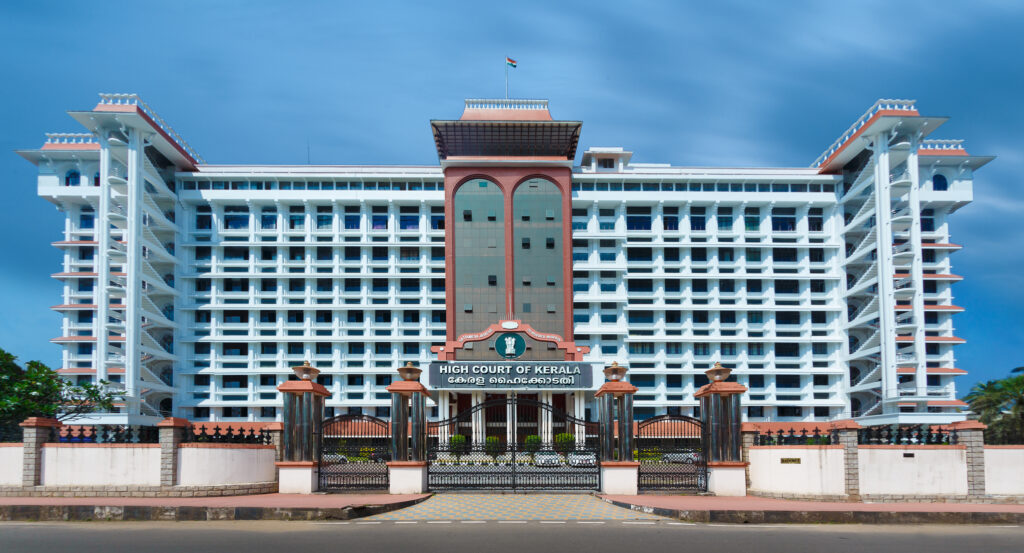The Kerala High Court has issued guidelines for the welfare of captive elephants, stating that no important religious practice requires the use of elephants in festivals.

The Kerala High Court has issued strong orders to enforce the Kerala Captive Elephants (Management and Maintenance) Rules, 2012. The Court observed that elephants in captivity are often used in religious festivals in the State, and their use is frequently justified by tradition and religious customs. “We do not think there is any essential religious practice that requires the use of elephants in festivals. However, we will not elaborate further at this time, as our current aim is to regulate the practice of parading elephants during festivals,” stated the Division Bench of Justice AK Jayasankaran Nambiar and Justice Gopinath P.
This ruling comes after several reports revealed cases of neglect and exploitation, particularly during major temple events in Kerala. The Court’s orders require that elephants used in public events receive sufficient food, water, and rest. Key requirements include mandatory rest periods of at least eight hours within a 24-hour timeframe and a limit of three hours for continuous display. Furthermore, elephants cannot participate in public road parades from 9 a.m. to 5 p.m., and their transportation is restricted to the hours of 10 p.m. to 4 a.m. If elephants need to walk, they are limited to a maximum of 30 kilometers per day, with longer distances needing to be covered in government-approved vehicles to minimize stress and physical strain.
The Court emphasized the need for tethering sites that meet specific standards, ensuring proper shelter with good ventilation, drainage, and constant access to clean drinking water. Each site must be at least 9 meters by 6 meters in size and 5.5 meters high, providing enough space for the elephants to move. Additionally, shade, natural flooring materials, and regular waste removal are required to prevent unsanitary conditions that could lead to infections and other health issues.
The Bench instructed festival organizers to obtain permission from district authorities at least one month prior to an event. Applications must provide detailed information about the elephants, including their identification, exhibition dates, the planned route for the procession, and a veterinary certificate confirming the animals’ health, recent milk cycles, and any history of aggressive behavior. Organizers need to show that all arrangements comply with welfare standards before they can get approval.
“The display of elephants without proper shelter is clearly cruel. We believe that measures must be taken to ensure that elephants are not paraded or made to stand in one spot for more than 10 minutes without shade. Festival organizers must arrange for adequate roofing during the parades,” the Court stated. The Court also noted that festivals or exhibitions should not use “Elephant Squads” that could cause stress or mistreat elephants in public. Additionally, the use of “capture belts” or similar devices to control distressed elephants is banned, as they are considered inhumane and harmful. Fireworks and fire-related activities at temple festivals must be at least 100 meters away from the elephants. The procession routes should limit exposure to extreme heat, with food and water checkpoints to prevent exhaustion and dehydration.
The Court expressed strong criticism of the Kerala government’s repeated delays in enforcing the 2012 Rules, despite clear orders from the Supreme Court. It raised alarms about the state’s lack of action, noting that the slow implementation of welfare measures has led to an increase in elephant deaths. The Bench made a shocking comparison, likening the treatment of captive elephants in Kerala to the conditions in the Nazi extermination camp, Treblinka, stressing the moral duty to treat animals with care and dignity. The Court pointed out that since the public interest litigation (PIL) began in 2021, the Kerala government’s efforts to improve animal welfare have not been adequate. Although the state has suggested changes to enhance the care of captive elephants, the Bench found major shortcomings, particularly in areas like rest periods, nutrition, and health checks. In light of these issues, the Court urged collaboration with stakeholders, including NGOs, elephant owners, and temple committees, to create temporary guidelines until the 2012 Rules can be fully enforced.
Emphasizing the need for immediate action, the Court referenced recent statistics showing a troubling drop in Kerala’s captive elephant numbers, linking this decline to inadequate living conditions and commercial exploitation. This ruling is consistent with the Supreme Court’s earlier directives in Wildlife Rescue and Rehabilitation Centre & Ors. v. Union of India (2016), which highlighted the importance of humane treatment for elephants.
We are clear that in this case, we are not creating any new laws with the directions we plan to issue. We are simply addressing the existing gaps. Our goal is to ensure the proper enforcement of the 2012 Rules, especially since the Supreme Court ordered their strict implementation on August 18, 2015, but the State and its officials have not followed these orders and have largely ignored them. The Court noted that this order seeks to address regulatory issues while we wait for full enforcement of protective measures. The Court instructed the Principal Secretary of the Forests and Wildlife Department to provide an affidavit explaining the reasons behind government orders that extended deadlines for the 2012 Rules. This affidavit should clarify how the government has complied with the Supreme Court’s decisions and explain any failures to comply.
The Court ordered the Principal Secretary of the Forests and Wildlife Department, Government of Kerala, to submit an affidavit detailing the reasons for issuing G.O (Ms.) No. 19/2022/F&WLD dated April 20, 2022, or any similar orders, despite the Supreme Court’s directives. The affidavit must also state whether the Supreme Court’s orders have been followed and, if not, the reasons for this non-compliance. The competent authority in the Government of Kerala must ensure that these directions and guidelines are strictly followed and, if needed, issue orders to communicate these directives to all relevant parties.
Cause Title: In Re Captive Elephants v. Union of India & Ors. [W.P.(C)No.31520 of 2024]









